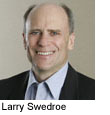Profit and prosper with the best of Kiplinger's advice on investing, taxes, retirement, personal finance and much more. Delivered daily. Enter your email in the box and click Sign Me Up.
You are now subscribed
Your newsletter sign-up was successful
Want to add more newsletters?

Delivered daily
Kiplinger Today
Profit and prosper with the best of Kiplinger's advice on investing, taxes, retirement, personal finance and much more delivered daily. Smart money moves start here.

Sent five days a week
Kiplinger A Step Ahead
Get practical help to make better financial decisions in your everyday life, from spending to savings on top deals.

Delivered daily
Kiplinger Closing Bell
Get today's biggest financial and investing headlines delivered to your inbox every day the U.S. stock market is open.

Sent twice a week
Kiplinger Adviser Intel
Financial pros across the country share best practices and fresh tactics to preserve and grow your wealth.

Delivered weekly
Kiplinger Tax Tips
Trim your federal and state tax bills with practical tax-planning and tax-cutting strategies.

Sent twice a week
Kiplinger Retirement Tips
Your twice-a-week guide to planning and enjoying a financially secure and richly rewarding retirement

Sent bimonthly.
Kiplinger Adviser Angle
Insights for advisers, wealth managers and other financial professionals.

Sent twice a week
Kiplinger Investing Weekly
Your twice-a-week roundup of promising stocks, funds, companies and industries you should consider, ones you should avoid, and why.

Sent weekly for six weeks
Kiplinger Invest for Retirement
Your step-by-step six-part series on how to invest for retirement, from devising a successful strategy to exactly which investments to choose.
As you view the damage to your investments, consider this: You can beat the great majority of professionals by using simple strategies that take advantage of low-cost index funds. Index funds track a broad swath of the market, such as big-company stocks, small-company stocks, emerging-markets stocks and so on.
Some of the sharpest minds in the world of finance -— from Nobel Prize–winning professors to Warren Buffett, who is arguably the greatest money manager of our time -- advocate a passive style of investing best accomplished with index funds. The evidence seems to back them up. For example, over the past 15 years through December 31, Standard & Poor's 500-stock index performed better than 66% of mutual fund managers who specialize in stocks of large U.S. companies.
And studies have shown that simply spreading money across different types of assets yields the lion’s share of benefits. So you don’t need to worry, for example, about which small-company stocks, foreign stocks and bonds to own. As long as you hold a broad sampling of each, you’ll have a port-folio that is less volatile than holding any single asset class.
From just $107.88 $24.99 for Kiplinger Personal Finance
Become a smarter, better informed investor. Subscribe from just $107.88 $24.99, plus get up to 4 Special Issues

Sign up for Kiplinger’s Free Newsletters
Profit and prosper with the best of expert advice on investing, taxes, retirement, personal finance and more - straight to your e-mail.
Profit and prosper with the best of expert advice - straight to your e-mail.
It's worth asking how well you've done with managers who actively buy and sell securities. Some do beat their index. But as Princeton's Burton Malkiel asserts in his classic book, A Random Walk Down Wall Street, there's no good way to "find such skill before it has been demonstrated over time."
Building a simple portfolio based on index funds is, well, simple. But we thought it would be interesting to ask some of the champions of easy, low-cost investing to suggest their own ideas.
We went to three experts with a straightforward request: Construct a balanced, low-cost portfolio, with no more than eight components, for people who are investing for the long term. We weren't rigid about the guidelines; our experts were allowed to use actively managed funds, if they wished, as well as index funds. The experts submitted their portfolios in December 2008, and we began tracking performance on January 1. We will rebalance the portfolios twice a year: on the last day of June and the last day of December.
Burton Malkiel Mix and match

In Burton Malkiel's view, managers in developed markets will be hard-pressed to beat their indexes over time. So he invests the bulk of his assets in index funds. And Malkiel, whose latest book (with three coauthors) is From Wall Street to the Great Wall: How Investors Can Profit From China's Booming Economy, keeps the majority of those assets in foreign stocks. He thinks foreign markets offer better growth opportunities than the U.S. does.
Although for the most part Malkiel recommends passively managed open-end and exchange-traded funds, he also holds stakes in some actively managed funds. (His sample portfolio represents his actual investments.) For instance, he owns Vanguard Capital Opportunity because of his "enormous" respect for the managers at Primecap Management Co., which runs the fund for Vanguard. Malkiel, a former director of the Vanguard Group, says he thinks he can make a small bet on Primecap's expertise because the core of his portfolio is in index funds.
More interesting are his picks of Templeton Dragon and Matthews India, both actively managed. "I believe that of all the places in the world, China and India are the two that will have the highest growth rates," says Malkiel. Templeton Dragon, a closed-end fund that buys stocks of companies based in China and nearby places, is managed by longtime emerging-markets maven Mark Mobius. Although Malkiel isn't sure that Mobius can beat the relevant index, he nonetheless considers him an excellent manager. “If I can buy Mark Mobius at 85 cents on the dollar, I'm happy to do it.” At its February 6 closing price of $17, Templeton Dragon sold for 6% less than the value of its underlying assets.
Malkiel says there aren't many good ways to play India. If a good closed-end India fund were trading at a discount to its net asset value, he'd buy it. For now, he'll take the Matthews fund.
Malkiel's portfolio
20% Vanguard Total Stock Market ETF (symbol VTI) Tracks a broad index of U.S. companies
20% Vanguard FTSE All-World ex-US ETF (VEU) Tracks a broad index of foreign stocks
20% Vanguard Total Bond Market ETF (BND) Tracks a broad index of high-quality U.S. bonds
10% Vanguard Capital Opportunity (VHCOX) An actively managed fund that focuses on big growth companies
10% Vanguard Emerging Markets ETF (VWO) Tracks an index of stocks of developing nations
10% Templeton Dragon (TDF) Invests in stocks from China and nearby nations
10% Matthews India (MINDX) Invests in stocks from India
[page break]
Larry Swedroe Skip the managers

Larry Swedroe doesn't mince words. Believing in the effectiveness of active management is "absurd" and "the triumph of hope over experience and wisdom," says Swedroe, director of research for St. Louis–based Buckingham Asset Management and author of several useful books, including The Successful Investor Today and The Only Guide to a Winning Investment Strategy You'll Ever Need. Some managers will beat the indexes occasionally, says Swedroe, but when they do, it's "purely out of luck."
His simple portfolio reflects these sentiments, as well as the tendency of value stocks and small-company stocks to do better over time than other stocks. It includes traditional open-end mutual funds and exchange-traded funds. All, however, track specific indexes.
Swedroe says many investors hurt themselves by changing their portfolios in response to emotions: "Investing is really very simple -- it's just not easy because emotions get in the way. The best-laid plans end up in the trash heap of emotions."
Swedroe's Portfolio
15% Vanguard Value Index (symbol VIVAX) Tracks an index of undervalued stocks from the largest U.S. firms
15% Vanguard Small Cap Value Index (VISVX) Tracks an index of stocks of small, undervalued U.S. companies
13% iShares MSCI EAFE Value Index (EFV) Tracks an index of stocks of large, undervalued foreign companies
13% iShares MSCI EAFE Small Cap Index (SCZ) Tracks an index of stocks of small overseas companies
4% Vanguard Emerging Markets Stock Index (VEIEX) Tracks an index of companies from developing nations
40% Vanguard Inflation-Protected Securities (VIPSX) Invests most assets in Treasury inflation-indexed bonds
William Larkin Say no to stocks

Given the interest in fixed-income investing (and the fear and loathing surrounding the stock market these days), we also sought a stock-free portfolio. William Larkin, fixed-income portfolio manager at Cabot Money Management, in Salem, Mass., says his portfolio gives investors exposure to all parts of the fixed-income market at the lowest possible cost; the average annual expense ratio of his picks is 0.33% (for our own take on investing sans stocks, see Stock-Free Portfolio). The portfolio, which includes a healthy dose of inflation protection, yielded 5.3% in early February. All but one of Larkin's picks (Fidelity Floating Rate High Income fund being the exception) are index-tracking, exchange-traded funds.
Larkin's Portfolio
25% iShares Barclays Aggregate Bond ETF (symbol AGG) Tracks a broad index of high-quality U.S. bonds
25% iShares iBoxx $ Investment Grade Corporate (LQD) Tracks an index of the most liquid, long-term corporate bonds
10% Fidelity Floating Rate High Income (FFRHX) Invests in bank loans that adjust to rising interest rates
10% iShares Barclays MBS Bond (MBB) Tracks a broad index of mortgage-backed securities
7.5% SPDR DB International Govt Inflation-Protected Bond (WIP)Invests in an index of non-U.S., inflation-linked bonds
7.5% PowerShares Emerging Markets Sovereign Debt (PCY)Tracks an index of emerging-markets government debt
7.5% iShares Barclays TIPS Bond (TIP)Tracks an index of inflation-protected, U.S. Treasury securities
7.5% iShares iBoxx $ High Yield Corporate Bond (HYG)Tracks an index of high-yield bonds
Our Picks Stick with one family
In the Kiplinger's portfolio, we use only Vanguard index funds because their costs are low and it's easier for investors to buy funds from a single family. Small-company stocks tend to outpace big-company stocks over time, so we overweight them a bit—but not so much as to add more volatility. Similarly, we include a couple of bond funds to reduce the portfolio's ups and downs. But we don't overdo the bonds because we want the bulk of the package to benefit from the long-term growth potential of stocks. And although property markets look dicey and real estate investment trusts have been battered, we add some REITs because they have delivered good long-term returns and can help tone down the portfolio's overall volatility.
Kiplinger's Portfolio
25% Vanguard 500 Index (symbol VFINX) Tracks Standard & Poor's 500-stock index
15% Vanguard Small-Cap (NAESX) Tracks an index of small-company U.S. stocks
20% Vanguard Total International Stock (VGTSX) Tracks an index of stocks from developed and emerging nations
5% Vanguard REIT (VGSIX) Tracks an index of U.S. real estate investment trusts
25% Vanguard Total Bond Market Index (VBMFX) Tracks a broad index of high-quality U.S. bonds
10% Vanguard Inflation-Protected Securities (VIPSX) Invests most assets in Treasury inflation-indexed bonds
Profit and prosper with the best of Kiplinger's advice on investing, taxes, retirement, personal finance and much more. Delivered daily. Enter your email in the box and click Sign Me Up.

-
 Betting on Super Bowl 2026? New IRS Tax Changes Could Cost You
Betting on Super Bowl 2026? New IRS Tax Changes Could Cost YouTaxable Income When Super Bowl LX hype fades, some fans may be surprised to learn that sports betting tax rules have shifted.
-
 How Much It Costs to Host a Super Bowl Party in 2026
How Much It Costs to Host a Super Bowl Party in 2026Hosting a Super Bowl party in 2026 could cost you. Here's a breakdown of food, drink and entertainment costs — plus ways to save.
-
 3 Reasons to Use a 5-Year CD As You Approach Retirement
3 Reasons to Use a 5-Year CD As You Approach RetirementA five-year CD can help you reach other milestones as you approach retirement.
-
 Best Banks for High-Net-Worth Clients
Best Banks for High-Net-Worth Clientswealth management These banks welcome customers who keep high balances in deposit and investment accounts, showering them with fee breaks and access to financial-planning services.
-
 Stock Market Holidays in 2026: NYSE, NASDAQ and Wall Street Holidays
Stock Market Holidays in 2026: NYSE, NASDAQ and Wall Street HolidaysMarkets When are the stock market holidays? Here, we look at which days the NYSE, Nasdaq and bond markets are off in 2026.
-
 Stock Market Trading Hours: What Time Is the Stock Market Open Today?
Stock Market Trading Hours: What Time Is the Stock Market Open Today?Markets When does the market open? While the stock market has regular hours, trading doesn't necessarily stop when the major exchanges close.
-
 Bogleheads Stay the Course
Bogleheads Stay the CourseBears and market volatility don’t scare these die-hard Vanguard investors.
-
 The Current I-Bond Rate Is Mildly Attractive. Here's Why.
The Current I-Bond Rate Is Mildly Attractive. Here's Why.Investing for Income The current I-bond rate is active until April 2026 and presents an attractive value, if not as attractive as in the recent past.
-
 What Are I-Bonds? Inflation Made Them Popular. What Now?
What Are I-Bonds? Inflation Made Them Popular. What Now?savings bonds Inflation has made Series I savings bonds, known as I-bonds, enormously popular with risk-averse investors. How do they work?
-
 This New Sustainable ETF’s Pitch? Give Back Profits.
This New Sustainable ETF’s Pitch? Give Back Profits.investing Newday’s ETF partners with UNICEF and other groups.
-
 As the Market Falls, New Retirees Need a Plan
As the Market Falls, New Retirees Need a Planretirement If you’re in the early stages of your retirement, you’re likely in a rough spot watching your portfolio shrink. We have some strategies to make the best of things.
